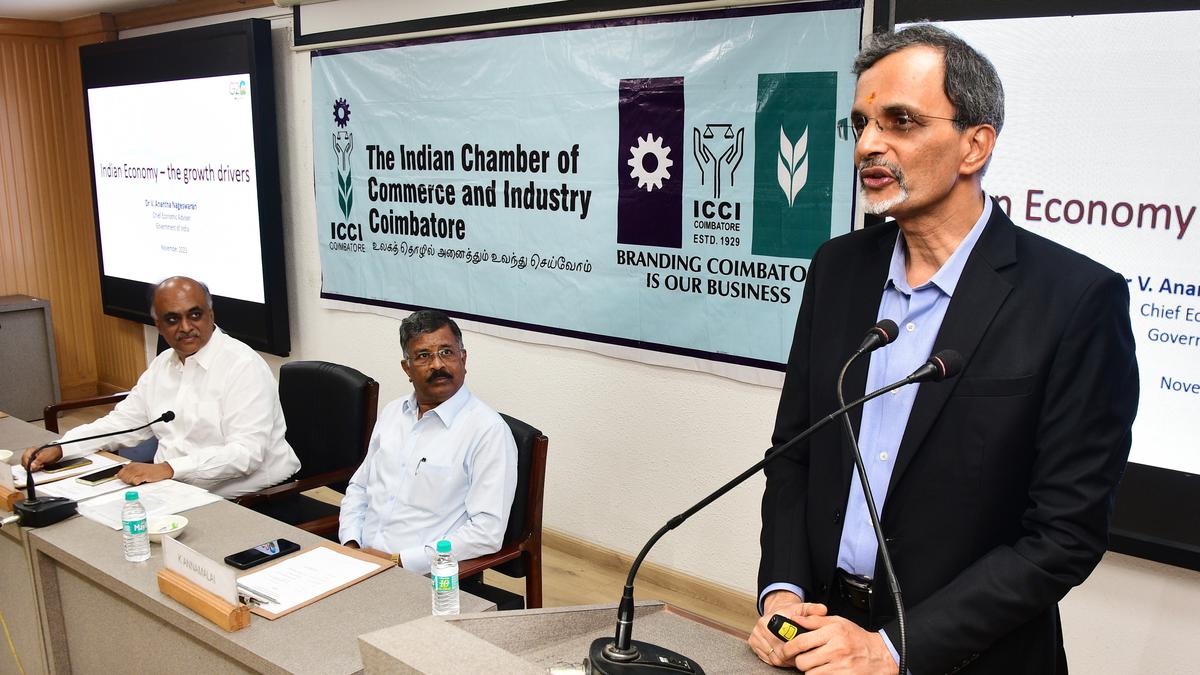
India’s economic prospects good in the short term, says Chief Economic Advisor Anantha Nageswaran
The Hindu
Chief Economic Advisor Anantha Nageswaran said India’s short and medium-term economic prospects were good. But, long term challenges need to be addressed to maintain growth momentum. Transition to renewable energy, spending on Rand D are some areas that need attention.
The short-term economic prospects (of India) is good and growth will be steady in the medium term, upwards of 6%. But, beyond 2030, there are some challenges to be addressed, said V. Anantha Nageswaran, Chief Economic Advisor, Government of India, in Coimbatore on Tuesday.
Addressing the members of the Indian Chamber of Commerce and Industry (ICCI) on “India’s Economic Growth Story”, he said India was on track to achieve 6.5% Gross Domestic Product (GDP) growth this year. Better balance sheets, digital public infrastructure leading to financial inclusion, etc., will ensure steady medium-term growth.
However, in the long term, India has to make sure the population is healthy, well educated, and skilled. The poorer and younger population should find employment, and governance continues to improve. Another important medium-term challenge is energy security and energy transition because of climate change. The global debate is about switching to renewable energy. This transition to renewable energy will require, paradoxically, more energy, Mr. Nageswaran said.
One area to be addressed by the industry, in the long term, is spending on research and development (R&D). India’s spend on R&D as a percentage of GDP in financial year 2018 was 0.7%. “We do not think of investment in R&D expenditure as future profitability insurance.”
India’s supply side infrastructure has improved, balance sheets of companies have become better, and its digital revolution is another silver lining, he added. Advanced digital infrastructure brings formalisation of the economy, financial inclusion, and access to markets.
“We are at the cusp of a major transformation in efficiencies, market access, and financial inclusion because of the digital advancements that we have been able to achieve in a short span of time. In terms of addressing long term structural issues, these things need to be implemented much better. They are on a slow lane right now. They will have to get on to a fast lane, whether it be asset monetisation, logistics, codifying labour laws, and public sector enterprise policy. All these things need to get on to the fast lane, which I expect will happen post election,” he said.













